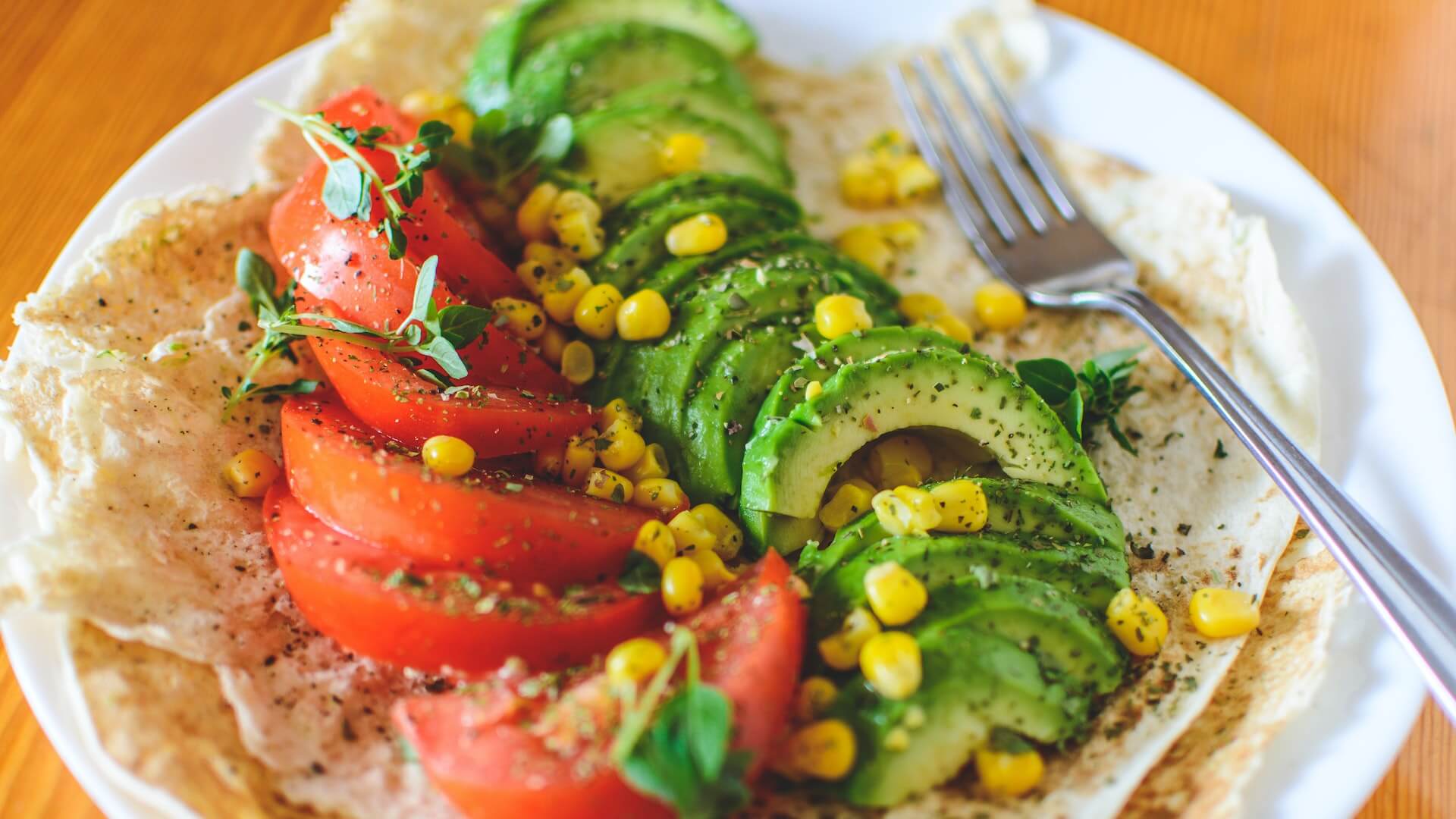Have you ever found yourself standing in front of a refrigerator full of food, yet still not knowing what to make for dinner? You’re not alone. Meal planning can seem overwhelming, but it doesn’t have to be. Creating a meal plan can save you time, money, and stress in the long run. By planning your meals in advance, you can make sure you have all the ingredients you need on hand and avoid the temptation of takeout or fast food. In this post, we will provide you with the ultimate guide to mastering the art of meal planning. From tips on how to get started, to planning for special diets or picky eaters, we will cover everything you need to know to make meal planning a stress-free and enjoyable part of your routine.
Benefits of meal planning: time-saving, cost-effective, and healthier choices
Meal planning is a game-changer when it comes to ensuring stress-free eating. Not only does it save you time, but it also proves to be cost-effective and encourages healthier choices.

One of the primary benefits of meal planning is the amount of time it saves. By taking a few moments each week to plan out your meals, you eliminate the need to constantly ponder over what to cook for breakfast, lunch, or dinner. Instead, you can simply refer to your pre-determined meal plan and get right to cooking. This not only reduces decision fatigue but also frees up time for other activities that you enjoy.
In addition to saving time, meal planning can also be incredibly cost-effective. When you plan your meals in advance, you can make a comprehensive grocery list and avoid unnecessary impulse purchases. By sticking to your list, you can avoid overspending and reduce food waste by only buying what you need. Furthermore, with a meal plan in place, you can take advantage of sales and discounts, allowing you to optimize your grocery budget.
Another significant advantage of meal planning is the promotion of healthier eating choices. When you plan your meals ahead of time, you have the opportunity to incorporate a variety of nutrient-dense foods into your diet. By consciously choosing balanced meals and snacks, you can ensure that your body receives the essential nutrients it needs to thrive. Moreover, meal planning allows you to portion control and avoid relying on unhealthy, convenient options when you’re pressed for time.
Assessing your current eating habits and understanding your dietary needs
Before diving into the world of meal planning, it’s essential to assess your current eating habits and understand your dietary needs. This step is crucial as it sets the foundation for creating a personalized and sustainable meal plan that caters to your unique requirements.
Start by taking a closer look at your current eating patterns. Explore the types of foods you typically consume, the frequency of your meals, and any specific preferences or restrictions you may have. Are you getting enough nutrients from your meals? Are there any food groups that you consistently overlook? Understanding your current eating habits will help you identify areas for improvement and guide you towards making healthier choices.
Next, it’s important to evaluate your dietary needs. Consider factors such as your age, gender, weight, activity level, and any underlying health conditions. These factors play a significant role in determining the appropriate balance of macronutrients (carbohydrates, proteins, and fats) and micronutrients (vitamins and minerals) your body requires. Consulting with a registered dietitian can provide valuable insights and ensure that your meal plan aligns with your specific dietary needs.
Additionally, take note of any food allergies or intolerances that you may have. This will help you avoid potential allergens and ensure that your meal plan is safe and enjoyable. Whether you’re lactose intolerant, gluten-sensitive, or have any other dietary restrictions, understanding these limitations will allow you to tailor your meals accordingly and explore suitable alternatives.
Setting realistic goals and expectations for meal planning
Many people make the mistake of trying to plan out every single meal for an entire week, only to feel overwhelmed and frustrated when they can’t stick to the plan. Instead, focus on setting achievable goals that work for your lifestyle and schedule.
Start by assessing your own cooking abilities and time constraints. If you’re a beginner in the kitchen or have a busy schedule, it may not be realistic to prepare elaborate meals every day. Instead, aim for a mix of simple recipes and leftovers that can be repurposed into new meals. This will save you time and effort while still providing nutritious and enjoyable meals.
Another important factor to consider is your family’s preferences and dietary restrictions. Take the time to sit down with your loved ones and discuss their favorite foods, any allergies or intolerances, and any specific dietary goals they may have. By involving everyone in the meal planning process, you’ll ensure that everyone is satisfied and more likely to stick to the plan.
It’s also important to be flexible with your meal planning. Life happens, and there may be days when you don’t have the time or energy to cook a planned meal. That’s okay! Have a backup plan in place for those situations, such as a list of quick and easy recipes or a stash of frozen meals that can be easily reheated.
Finally, don’t forget to give yourself some grace. Meal planning is meant to simplify your life, not add stress or pressure. If you have a week where your plan falls apart or you order takeout more than you intended, don’t beat yourself up about it. Just get back on track the following week and remember that consistency is key.
Tools and resources for effective meal planning
When it comes to effective meal planning, having the right tools and resources at your disposal can make a world of difference. Not only can these tools streamline the planning process, but they can also help you stay organized and save time in the kitchen.

One essential tool for meal planning is a good recipe app or website. These platforms offer a vast array of recipes, often with filtering options that allow you to search based on dietary preferences, ingredients on hand, or cooking time. Some even have features that generate meal plans for you, taking the guesswork out of what to make each day.
Meal planning apps are also incredibly helpful. These apps allow you to create and customize weekly meal plans, add recipes, and generate shopping lists based on your selections. With just a few taps, you can plan your meals for the week, ensuring that you have all the ingredients you need right at your fingertips.
Another valuable resource for effective meal planning is a well-stocked pantry and kitchen. Keeping your pantry stocked with staples such as grains, canned goods, spices, and condiments can make it easier to whip up meals on the fly. Additionally, having a variety of kitchen tools and gadgets, such as a slow cooker, Instant Pot, or good set of knives, can make meal prep a breeze.
Don’t underestimate the power of meal planning templates and printables either. These resources provide a visual structure for planning your meals, making it easy to jot down your ideas and keep track of what you need to buy. Whether you prefer a simple weekly planner or a more detailed template that includes space for notes and grocery lists, finding a format that works for you can help you stay on track with your meal planning goals.
Lastly, don’t forget about the power of community and inspiration. Joining online forums or social media groups dedicated to meal planning can provide you with a wealth of ideas, tips, and support. You can connect with like-minded individuals, share recipes, and gain insight into new ingredients or cooking techniques. Additionally, cookbooks and cooking magazines can serve as excellent sources of inspiration, helping you discover new recipes and flavors to incorporate into your meal plans.
Planning your meals: tips and strategies for successful meal prepping
Here are some tips and strategies to help you succeed in your meal prepping journey.
1. Start with a Weekly Menu:
Begin by creating a weekly menu that includes breakfast, lunch, dinner, and snacks. Take into consideration the dietary preferences and restrictions of your family members. This will give you a clear vision of what you need to prepare and buy for the week.
2. Keep a Well-Stocked Pantry:
Maintain a well-stocked pantry with staple ingredients such as grains, legumes, canned goods, and spices. This will make it easier for you to whip up quick and healthy meals without having to run to the grocery store frequently.
3. Make a Shopping List:
Once you have your weekly menu planned, make a detailed shopping list. Organize it by categories like produce, dairy, meat, and pantry items to ensure that you don’t miss anything while shopping. Stick to your list to avoid impulse purchases and unnecessary spending.
4. Prep in Batches:
Dedicate a specific time each week for meal prepping. Chop vegetables, marinate meats, cook grains, and prepare sauces or dressings in batches. This will save you time during busy weekdays and make assembling meals a breeze.
5. Utilize Leftovers:
Don’t let leftovers go to waste. Plan your meals in a way that allows you to repurpose ingredients from previous meals. For example, roasted chicken from dinner can be used in sandwiches or salads for lunch the next day. This not only reduces food waste but also saves you from cooking every single meal from scratch.
6. Invest in Storage Containers:
Having a collection of high-quality storage containers will make your meal prepping experience more organized and efficient. Choose containers that are stackable, leak-proof, and microwave-safe for easy reheating and storage.
7. Stay Flexible:
While having a weekly meal plan is beneficial, it’s essential to stay flexible. Life can be unpredictable, and there may be times when you need to change your plans. Don’t be too rigid with your schedule and be open to adapting your meals based on unforeseen circumstances.
Grocery shopping made easy: creating a shopping list and sticking to it
Creating a shopping list and sticking to it is a game-changer when it comes to mastering the art of meal planning. Not only does it save you time, but it also helps you stay focused and organized during your grocery shopping trips.

Start by taking a few minutes to plan your meals for the week ahead. Consider your schedule, dietary preferences, and any ingredients that need to be used up from your pantry or fridge. Once you have a clear idea of what you’ll be cooking, make a comprehensive shopping list.
Organize your list by categories such as produce, dairy, pantry staples, and proteins. This will make navigating the grocery store much easier and prevent you from aimlessly wandering the aisles. Be specific with your quantities and double-check your inventory to avoid unnecessary purchases.
In addition to the list, it can be helpful to plan your shopping route to save time and energy. Start with non-perishable items, then move on to refrigerated and frozen goods. This way, you can ensure that delicate items stay fresh until you reach the checkout counter.
While it’s tempting to veer off track and grab items that catch your eye, stick to your list as much as possible. Impulse buys can quickly add up and derail your budget. However, if you come across a great sale or a special ingredient that aligns with your meal plan, feel free to make adjustments and take advantage of the opportunity.
Meal prepping techniques: batch cooking, freezer meals, and leftovers
By investing some time upfront to plan and prepare your meals, you can save yourself valuable time and effort throughout the week. Three popular meal prepping techniques are batch cooking, freezer meals, and utilizing leftovers.
Batch cooking involves preparing a large quantity of a particular dish or ingredient that can be used in multiple meals. For example, you can cook a big pot of chili, grilled chicken breasts, or a variety of roasted vegetables. Once cooked, portion them out into individual containers or zip-top bags for easy grab-and-go meals. Batch cooking allows you to have pre-made components that can be mixed and matched to create different meals throughout the week.
Freezer meals are another fantastic option for meal prepping. These are complete meals that are cooked in advance and then frozen for later use. Casseroles, soups, and stews are great candidates for freezer meals. Simply prepare the dish, portion it into freezer-safe containers, and store them in the freezer. When you’re ready to enjoy a stress-free meal, just thaw and reheat.
Don’t underestimate the power of leftovers. Instead of letting them go to waste, repurpose them into new meals. For example, turn leftover roasted chicken into a delicious chicken salad or transform yesterday’s stir-fry into a flavorful wrap. With a little creativity and some basic kitchen skills, leftovers can become the foundation for a whole new meal.
Overcoming common challenges and staying motivated on your meal planning journey
Embarking on a meal planning journey can be exciting and rewarding, but it’s not without its challenges. As with any new habit or routine, there may be obstacles along the way that can test your motivation. However, with the right mindset and strategies, you can overcome these challenges and stay motivated on your meal planning journey.

One common challenge many people face is the lack of time. We live in a fast-paced world where time seems to slip away effortlessly. However, with proper planning and organization, you can make the most of your precious time. Set aside dedicated time each week to plan your meals, create shopping lists, and prep ingredients. By making meal planning a priority, you’ll find that it becomes easier to stick to your goals and stay motivated.
Another challenge that often arises is the temptation to stray from your meal plan. Social gatherings, unexpected events, or simply cravings for your favorite indulgences can make it tempting to veer off course. To combat this, it’s important to have a flexible mindset. Allow yourself the occasional treat or modification to your plan without feeling guilty. Remember, the goal is long-term success, and a minor detour won’t derail your progress. Stay focused on the bigger picture and the benefits that come with sticking to your meal plan.
Lack of variety can also be a challenge when it comes to meal planning. Eating the same meals week after week can quickly lead to boredom and loss of motivation. To overcome this, incorporate variety into your meal plan. Experiment with new recipes, cuisines, and ingredients. Explore different cooking methods and spices to add flavor and excitement to your meals. This will not only keep your taste buds satisfied but also keep you motivated to continue your meal planning journey.
Lastly, it’s crucial to celebrate your successes along the way. Recognize and acknowledge the progress you’ve made, whether it’s sticking to your meal plan for a week or trying a new healthy recipe. Reward yourself with non-food-related treats such as a relaxing bath, a new book, or a workout class you’ve been wanting to try. Celebrating milestones, no matter how small, will boost your motivation and reinforce the positive habits you’ve developed.
Conclusion
Meal planning is a game-changer when it comes to achieving stress-free eating and maintaining a healthy lifestyle. By following the steps outlined in our blog post, you can save time, money, and energy while ensuring that you always have nutritious meals available. Embrace the power of meal planning and watch as your stress levels decrease and your enjoyment of cooking and eating increases. Bon appétit!



